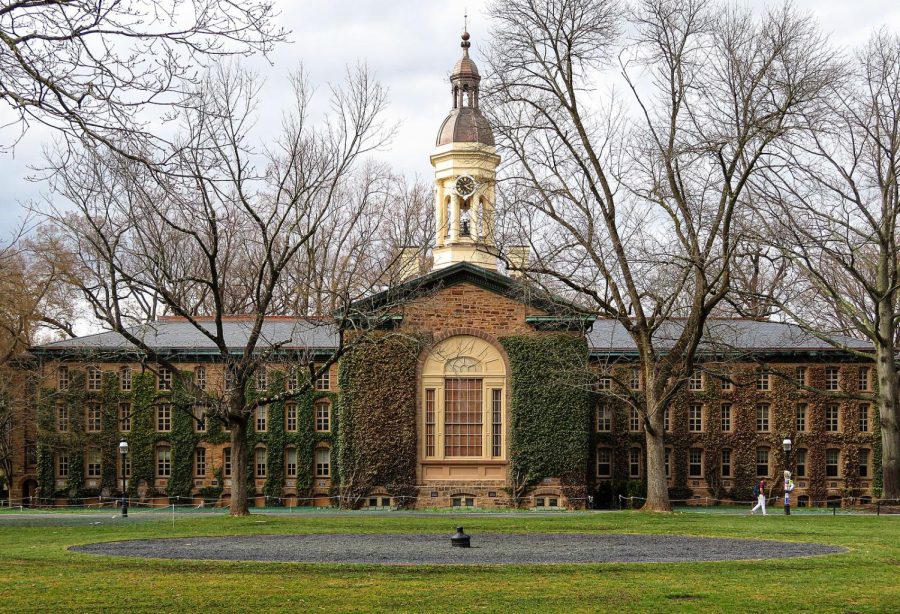Ceesay: Rising college costs make higher education inaccessible
Ken Lund, CC BY-SA 2.0, via Wikimedia Commons
Ivy League schools such as Princeton University (pictured) are especially difficult to afford, even for those qualified to attend.
February 4, 2022
College has become increasingly expensive over the last few decades, especially in the U.S. In fact, underlying college tuition costs in the U.S. are the most expensive of any other developed country; however, these costs are increasing at a rate that is unsustainable for college admits as the years go by. While the cause of this is actually due to a higher demand –– in addition to inflation and a lack of state funding –– this major supply and demand effect may only discourage people from going to college entirely.
In the 2019-2020 school year, public four-year institutions increased from $9,212 in the 2018-2019 school year to $9,349. While this cost increase may not appear too expensive, private four-year institutions experienced a higher jump, averaging $32,769 in tuition costs and increasing by almost $1,000 from the previous year.
The number of attendees is also declining, likely as a result of this. Higher-education enrollment has decreased 3.5% as of spring 2021 from the previous year. Additionally, the national student enrollment average decreased by 11% since 2011.
On the contrary, some may say the rising cost of college tuition is an inevitable aspect of growing inflation rates in the U.S.; however, the rates of tuition costs are surpassing current inflation rates in the country. Because of this trend, it is evident the rise in the price of college tuition is something that could be prevented more than it currently is.
It is crucial for institutions to increase funds to compete with other institutions by raising the costs of tuition, which provides more resources. While it may seem as if these institutions are benefitting students by doing this, it will only hurt attendees financially in the long run, especially if these students have to suffer financially to not even reap the benefits that are supposed to come from the increases in tuition.
College attendance should not be something that is only perceived as a means for financial gain. It is a common trend for many Americans that have recently graduated to be thousands of dollars in debt.
Even our community at MSMS is regularly affected by these rising costs. Many students here aspire to attend prestigious universities, not just for the title, but for the opportunities as well; however, there are many instances where students get into extremely prestigious universities such as Harvard, Tulane and Vanderbilt, but are unable to attend due to their costs. While some of these schools are known for not having the most gracious financial aid packages, the ever-rising costs of colleges still play a major role in decreasing college enrollment. It shows attending college, especially private and prestigious institutions, are not based on merit or ability. Rather, being able to attend without having mounds of debt after graduation is based on whether you have the money to achieve that. No amount of financial aid or scholarships can defeat the large sums of money that most Americans will owe after they matriculate.
Because of the immense financial burdens it can bring, college is becoming a less available option for many. This presents a major issue, as 37% of all occupations require a college degree. Without a college degree, options in the career market narrow drastically. Either route a person may choose seems to result in extreme financial disadvantages, showing higher education is not as accessible in the U.S. as it may appear.









